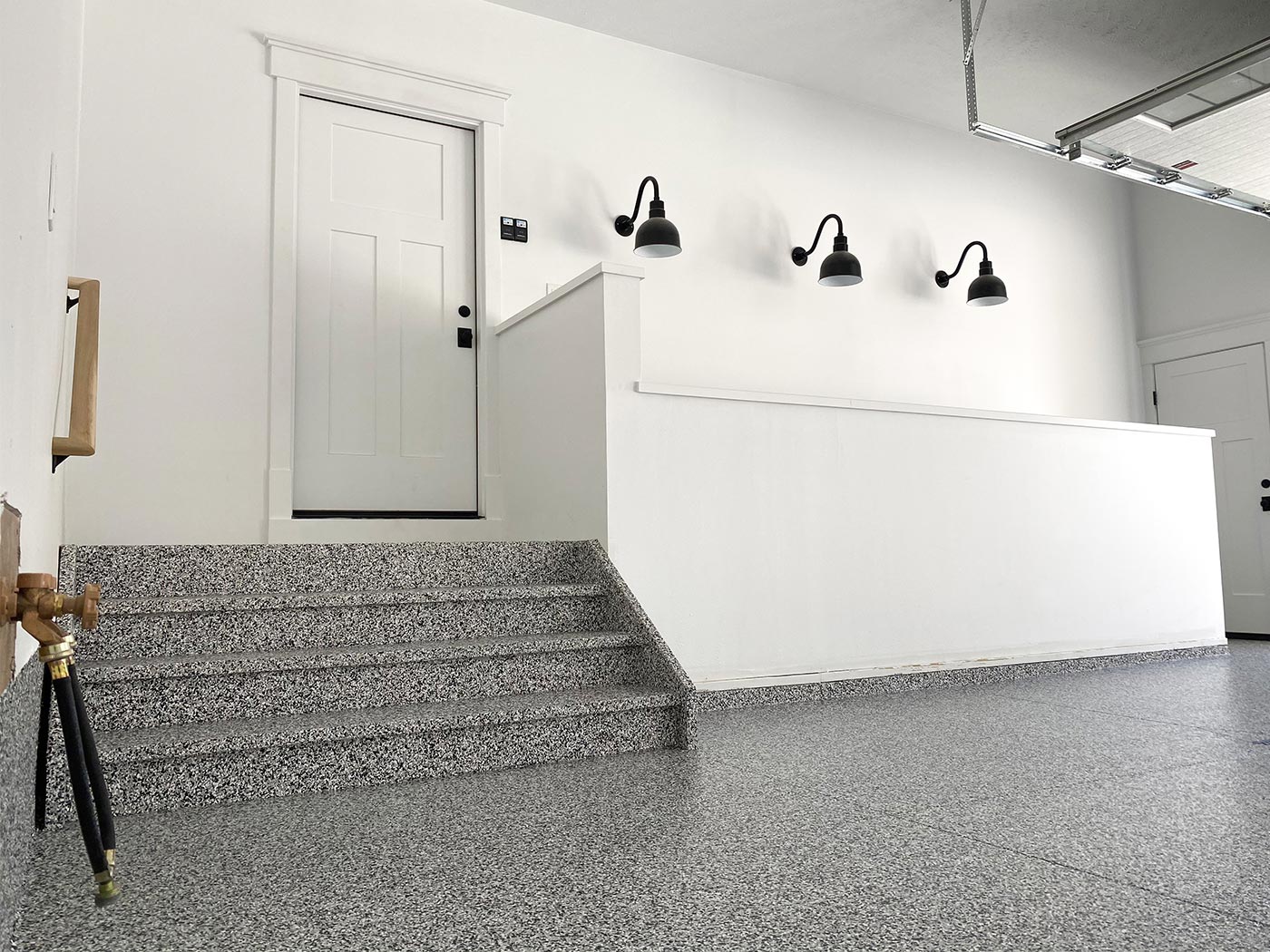Epoxy flooring is well known for its value and durability. This type of flooring is commonly used in warehouses, commercial and residential garages, basements and manufacturing plants, but it can bring a sleek look to any room or office space. One of the best benefits of epoxy is that it lasts longer than many other flooring options. Exactly how long your epoxy flooring will last, however, depends on several different factors.
Professional vs. DIY Installation
The longevity of your epoxy flooring will depend directly on the quality of the installation. Unless you have experience working with epoxy, it is highly recommended to avoid DIY installation. There are many factors that must be taken into consideration, such as floor preparation, the condition of concrete, humidity and air temperature.
If you want to enhance the look of the flooring by adding colored flakes to the epoxy, this adds another level of difficulty to the process. Without the right skills and expertise, you could damage the flooring. Most importantly, improper installation of your epoxy flooring will significantly reduce the floor’s lifespan.
High-Traffic vs. Low-Traffic Area
While epoxy flooring is designed to withstand a high level of traffic, too much foot or machine traffic could reduce how long the flooring last. You likely will notice signs of wear and tear in the areas where there is a high demand of traffic before other less-trafficked areas, such as the corners and edges. The most important thing is to make sure you use the quality grade of epoxy needed to handle the amount of expected floor traffic.
Single-Layer vs. Multi-Layer Process
You can choose to use a single-layer or a multi-layer installation process. With a single-layer process, only a top coating will be installed. Whereas, the multi-layer process is completed by installing multiple layers, including a primer and a top coat. Since there are several layers to wear through before a new flooring is necessary, the epoxy flooring installed with the multi-layer process will last longer than those using only the single-layer process.
Standard vs. Industrial-Grade Epoxy
It is important to realize that not all epoxy products are of the same quality. If you are using epoxy for commercial flooring, it is recommended to use an industrial grade epoxy. Standard epoxy may work adequately for residential flooring, but it will never withstand an industrial environment. If you want to make sure your flooring lasts a long as possible, you should use a high-quality industrial-grade epoxy. Your flooring installation professional will work with you to make sure the best epoxy for your specific flooring environment is used.
High Level vs. Low Level of Maintenance
Proper maintenance can greatly extend the life of your epoxy flooring. It is important to sweep the floor on a regular basis to remove any type of dirt and debris that could scratch or damage the surface. If any chemicals or oils spill on the floor, you should clean it up as soon as possible to prevent damage to the epoxy coating. It also is recommended to avoid using any type of abrasive or acidic cleaners on the floor because they can erode the epoxy coating over time. While soap-based cleaners will not damage the flooring, it can create a hazy film over the flooring and dull its shine.
Epoxy flooring is long-lasting and very durable. If you take steps to make sure you install the right type and quality of flooring, work with professional flooring installers, and properly maintain your floor, it will greatly extend its longevity. Contact Boston Garage to learn more about epoxy flooring and to request a free consultation today.
.jpg)
